Related Research Articles

Texas is a Scottish rock band from Glasgow, founded in 1986 by Johnny McElhone, Ally McErlaine, and Sharleen Spiteri. Texas made their performing debut in March 1988 at the University of Dundee. They took their name from the 1984 Wim Wenders movie Paris, Texas.
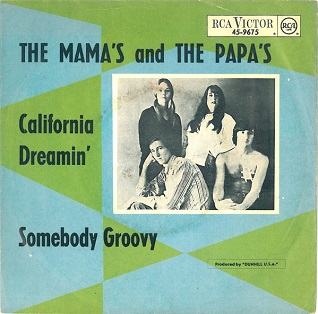
"California Dreamin'" is a song written by John Phillips and Michelle Phillips in 1963 and first recorded by Barry McGuire. The best-known version is by the Mamas & the Papas, who sang backup on the original version and released it as a single in December 1965. The lyrics express the narrator's longing for the warmth of Los Angeles during a cold winter in New York City. It is recorded in the key of C-sharp minor.
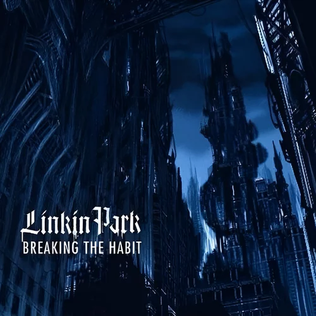
"Breaking the Habit" is a song by American rock band Linkin Park. It is the ninth track from their second studio album, Meteora, and was released as the fifth and final single from the album. The song was a hit; it became the fifth consecutive single from Meteora to reach number one on the Billboard Modern Rock Tracks chart, a feat unmatched by any other artist in the history of that chart. It was also the third single from the album to reach number one on the Mainstream Rock Tracks chart. The song also peaked at number 20 on the Billboard Hot 100, and was certified Gold by the RIAA. The song was also successful in many other countries, except in the UK where it became their first single to chart outside of the top thirty, faring only better than their previous single "From the Inside" which failed to chart. On September 4, 2012, "Breaking the Habit", "Shadow of the Day", "New Divide", and "Burn It Down" were released in the "Linkin Park Pack 02" as downloadable content for the music rhythm video game, Rock Band 3.

"Welcome to the Jungle" is a song by American rock band Guns N' Roses, featured as the opening track on their debut album, Appetite for Destruction (1987). It was released as the album's second single initially in the UK in September 1987 then again in October 1988 this time including the US, where it reached number seven on the Billboard Hot 100 and number 24 on the UK Singles Chart.

"Kokomo" is a song by the American rock band the Beach Boys from the 1988 film Cocktail and album Still Cruisin'. Written by John Phillips, Scott McKenzie, Mike Love, and Terry Melcher, the song was released as a single on July 18, 1988 by Elektra Records and became a number one hit in the US and Australia. It was the band's first original top-20 single in 20 years and their first number-one hit in 22 years.

"Epic" is a song by American rock band Faith No More. It was released as the second single from their third album, The Real Thing (1989), in 1990 in United States, the United Kingdom, and Europe. The song was the band's breakthrough hit, peaking at number nine on the US Billboard Hot 100, number two in New Zealand, and number one in Australia for three weeks. It is among the band's most popular songs and a staple in their concerts.

"When I'm with You" is a power ballad by Canadian arena rock band Sheriff. The song was released in January 1983 in Canada as the second single from their self-titled debut album. A top-ten hit in Canada in 1983, the song later reached number one in the United States in 1989, four years after the band separated in 1985. Guinness World Records lists “When I’m With You” as having the “Longest-held vocal note in a US hit single” which “features a note timed at 19.3 seconds” by “lead singer Federico ‘Freddy’ Curci [who] performed the soaring vocal – starting at 3 minutes 26 seconds – on the recording.” This song is also notable in that it was one of the few number-one hits not to have a promotional video during the MTV era.

"I Write the Songs" is a popular song written by Bruce Johnston in 1975 and released on his album Going Public in 1977. Barry Manilow's version reached number one on the Billboard Hot 100 chart in January 1976 after spending two weeks atop the Billboard adult contemporary chart in December 1975. It won a Grammy Award for Song of the Year and was nominated for Record of the Year in 1977. Billboard ranked it as the No. 13 song of 1976.

"One Last Breath" is a song by American rock band Creed. The band's lead vocalist, Scott Stapp, wrote the song over a period of three weeks and recorded at J. Stanley Productions Inc in Ocoee, Florida. The lyrics of the song are about reflecting on past mistakes and seeking comfort from friends who want to help. It was released in April 2002 as the third single from their third studio album, Weathered (2001).

"What's This Life For" is a song by American rock band Creed. It is the third single and ninth track off their 1997 debut album, My Own Prison. The song reached number one on the Billboard Hot Mainstream Rock Tracks chart in the U.S., becoming their first number one hit on this chart. It remained on top for six weeks.
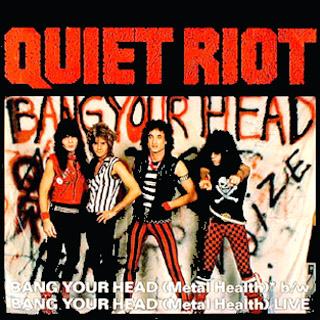
"Metal Health", sometimes listed as "Metal Health (Bang Your Head)", "Bang Your Head" or, as it was listed on the Billboard Hot 100, "Bang Your Head (Metal Health)", is a song by the American heavy metal band Quiet Riot on their breakthrough album, Metal Health. One of their best known hits and receiving heavy MTV music video and radio play, "Metal Health" was the band's second and final top 40 hit, peaking at #31 on the Billboard Hot 100.

"Right Here Waiting" is a song by American singer and songwriter Richard Marx. It was released on June 29, 1989, as the second single from his second album, Repeat Offender (1989). The song was a global hit, topping charts in many countries around the world, including Australia, Canada, Ireland, New Zealand, and the United States where it reached number one on the Billboard Hot 100. The same year, it was certified platinum by the Recording Industry Association of America (RIAA). It was the UK's most streamed love song on Spotify ahead of Valentine's Day in 2013 and has since been covered by many artists, including R&B singer Monica.

"Twist in My Sobriety" is a song written and performed by British singer-songwriter Tanita Tikaram. Released as a single in October 1988 from her debut album, Ancient Heart (1988), it was Tikaram's biggest international success, achieving top-10 placings in several European countries. The song reached number two in both Austria and West Germany. Its music video was directed by Gerard de Thame and filmed in Bolivia.

"Give a Little Bit" is the opening song on Supertramp's 1977 album Even in the Quietest Moments... The song was released as a single that same year and became an international hit for the band, peaking at number 15 on the Billboard Pop Singles chart. It was a chart hit in the band's native UK, reaching number 29 on the UK Singles Chart. The single was re-released in 1992 to raise funds for the ITV Telethon Charity event, but failed to chart.

"The Flame" is a power ballad released in 1988 by the American rock band Cheap Trick and the first single from their tenth album Lap of Luxury. It was written by songwriters Bob Mitchell and Nick Graham.
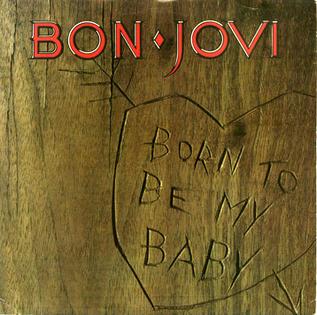
"Born to Be My Baby" is a song by American rock band Bon Jovi. It was written by Jon Bon Jovi, Richie Sambora, and Desmond Child. It was released on November 24, 1988 as the second single from their fourth studio album New Jersey. It peaked the following year at number 2 on the Cash BoxTop 100, 3 on the Billboard Hot 100, number 7 on the Mainstream Rock Tracks chart, number 22 in the UK, and number 30 in Australia.

"Piano in the Dark" is a song by American singer-songwriter Brenda Russell. It was the first single to be taken from Russell's 1988 album, Get Here.

"Everything Zen" is a single by British grunge band Bush. Released on 28 January 1995, it was the band's first single released under the name "Bush", and their second overall. The single comes from their 1994 debut album, Sixteen Stone.

"Life After You" is a song by American rock band Daughtry, released as the second single from their second album, Leave This Town (2009). Chris Daughtry wrote the song with Nickelback vocalist Chad Kroeger and producer Joey Moi. Two versions of the original version exist: an album version and a music video version with the crowd cheering at the end. "Life After You" received positive reviews from music critics and was a success in most of the charts. It was also featured as the soundtrack of the 2013 animated film Alpha and Omega 2: A Howl-iday Adventure.
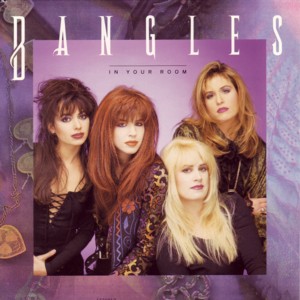
"In Your Room" is a 1988 song by American rock group The Bangles, written by Susanna Hoffs in collaboration with Billy Steinberg and composer Tom Kelly. The song was released as the first single from the band's third album, Everything. It reached the top five of the US singles chart, and also charted in Australia, New Zealand, and the United Kingdom.
References
- ↑ Whitburn, Joel (2004). The Billboard Book of Top 40 Hits, 8th Edition (Billboard Publications), page 189.
- ↑ "The Doctor". Songfacts.com. Retrieved 2009-12-26.
- ↑ "Top Singles - Volume 51, No. 8, December 23, 1989". RPM. December 23, 1999. Archived from the original on September 7, 2017. Retrieved November 22, 2017.
- ↑ "1989 Year-End" . Retrieved December 7, 2019.